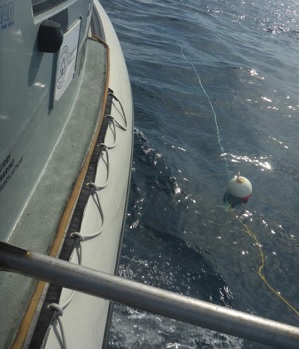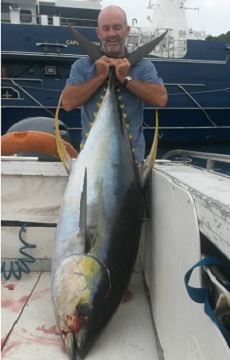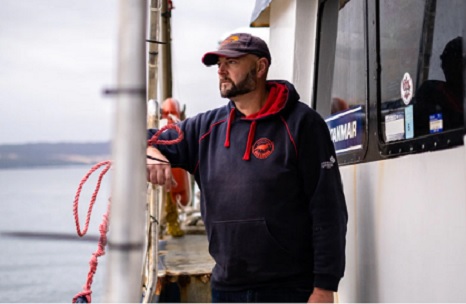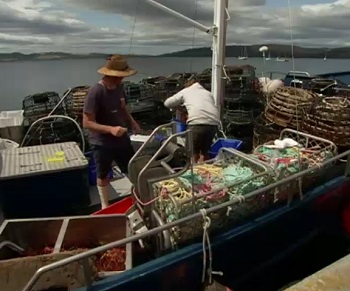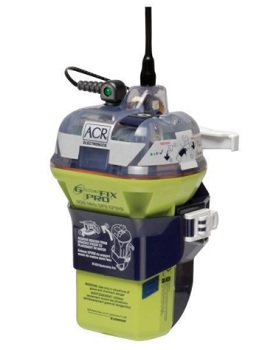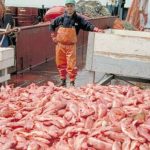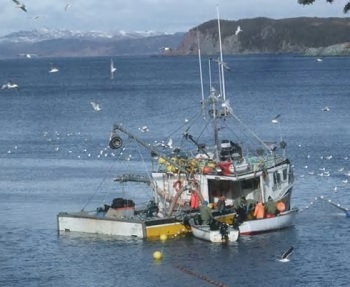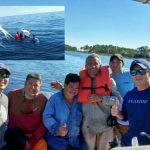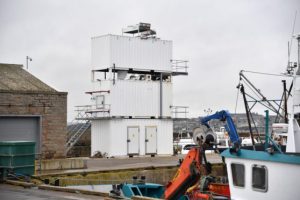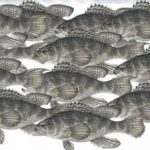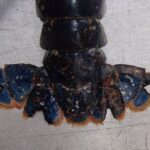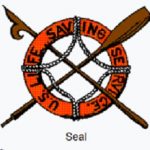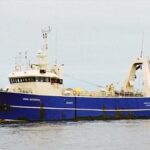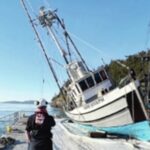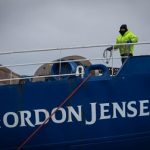Tag Archives: Australia

Great ‘Green’ Job Hoax: Only China Profits From Making Wind Turbines & Solar Panels
The promise of thousands of jobs building wind turbines and solar panels is a renewable energy mantra; there are – but only in China. China itself is building nuclear power plants and hundreds more coal-fired power plants, as if its economic livelihood depends on it. Meanwhile, in those Western countries foolish enough to attempt to run on sunshine and breezes, those few jobs that did materialise are fast disappearing. However, as laid out below, don’t expect any meaningful or lasting employment. Unless, of course, you’re a Uighur slave building solar panels in a factory somewhere hidden in China. >click to read< 12:26

Watching Wind And Solar Fail To Power The World Economy
You don’t have to be any kind of a genius to figure out that wind and solar generation are never going to supplant fossil fuels in powering the world economy. Thankfully the U.S., home of fracking, has mostly been spared the huge natural gas price spikes that have befallen Europe and Asia. If the dopes occupying the White House and leading the Congress had their way, we would be suffering the fate of those places and worse. And oil? It’s suddenly trading at $80 and more per barrel, the highest price since 2014. >click to read< 11:28 U.K. Turns to Coal as Low Wind Output Increases Power Prices – U.K. power prices rose after a coal power plant switched on Monday to make up for a shortfall in wind generation and limited flows on two power cables to Ireland. >click to read< 14:32
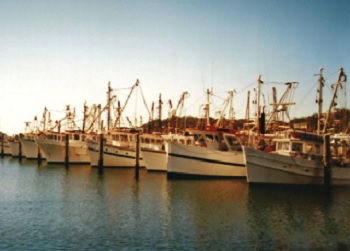
Something Fishy: Local seafood is first class. So, what has changed?
It was in 1983 that there were around 23 trawlers working to full capacity returning to port, day after day, with excellent catches of fish and prawns. Today the local fleet numbers three boats with a return far reduced from earlier years. So, what has changed? The introduction of the Marine Park reduced the area which could be fished. The cost of diesel increased along with the wages of crewmen. One of the biggest changes has been the introduction of farmed seafood and the importation of overseas product. The remaining trawlermen continue to work hard in difficult conditions. >click to read< 12:36
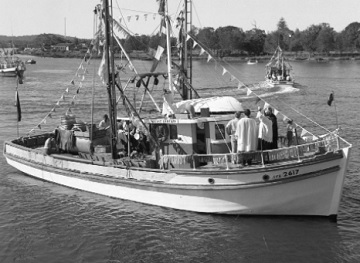
Poole family in support of proposal to restore fishing trawler Pacific Venture in Laurieton.
Australian film director Damien Lay has previously announced intentions to restore the historic trawler and make it the subject of an international documentary. The vessel was built by residents and became a key boat in the extensive Camden Haven fishing fleet during the 1960s and 1970s. It is now the only remaining vessel intact in the area. Former owner Kim Poole, 65, the son of original boat owner Donald ‘Jock’ Poole, said he began working on the boat when he was 13-years-old. “It wasn’t the last boat built in Laurieton, but it supplied the fish coop for many years in the 1970s and 1990s, and there were some record catches made onboard. photos, >click to read< 21:38
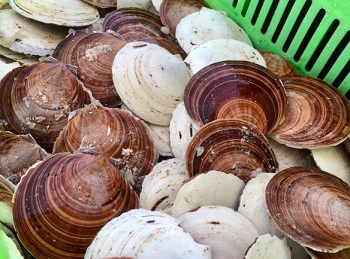
Queensland’s scallop industry in doubt
Fisheries Queensland says recent figures show scallop numbers are in serious decline with the biomass, or the amount that can be fished, dropping to 12 per cent of 1977 levels. But Queensland Seafood Industry Association treasurer and scallop fisherman Kevin Reibel said completely closing the fishery would be devastating to south-east Queensland communities. >click to read< 22:00
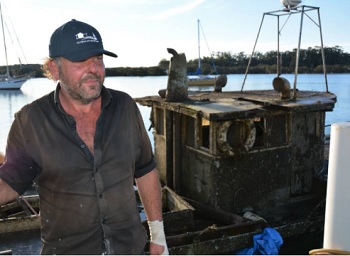
Australian film director plans to restore and create documentary film on fishing trawler Pacific Venture
Mid-North Coast fishing trawler Pacific Venture is destined to be restored and become the subject of an international documentary, according to Australian film director Damien Lay. The now barnacle-encrusted vessel was once a key boat in the extensive Camden Haven fishing fleet during the 1960s and 1970s, and is now the last vessel that remains intact in the area.,, “What is important is that Pacific Venture is recognised as a very much- 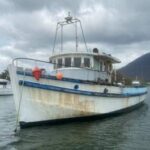 loved and appreciated part of our local maritime history. Although she has had a rough voyage, her journey is not over, it’s only just beginning,” Mr Lay said. “Previous owner and gentleman Donald ‘Jock’ Poole was one of the top fisherman from the area with huge family connections. >click to read< 17:35
loved and appreciated part of our local maritime history. Although she has had a rough voyage, her journey is not over, it’s only just beginning,” Mr Lay said. “Previous owner and gentleman Donald ‘Jock’ Poole was one of the top fisherman from the area with huge family connections. >click to read< 17:35
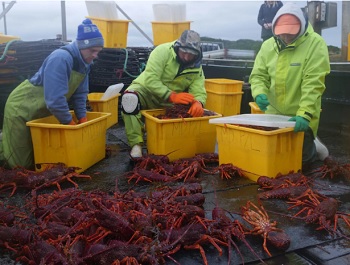
Tasmania: King Island lobster fishers fear seismic testing plans could damage the local industry
Wayne Coombe casts his mind back about 15 years when seismic testing was conducted off the island’s south west. “There was an abundance of lobster there and after that survey, it was almost like they died overnight of old age,” he said. “Lobsters just disappeared, they didn’t crawl, they were not there.” Gas giant ConocoPhillips is hoping to conduct seismic testing in mid-August at the Otway Basin to the west of King Island to assess its natural gas reservoirs. >click to read< 09:08
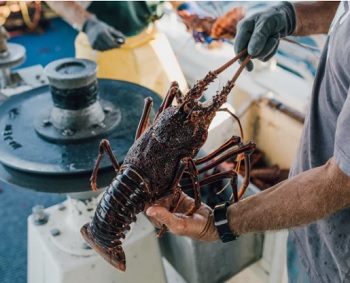
Banned Australian lobsters are sneaking into China via Hong Kong
Since direct shipments to China virtually ground to a halt last November, Hong Kong has become the world’s largest importer of Australian lobsters, with monthly trade growing more than 2000 per cent from October to April. While lower prices will have spurred some increased demand from Hong Kong consumers, experts say the dramatic spike is more likely due to a grey trade as the tasty crustaceans are sent across the border to the mainland. >click to read< 09:22
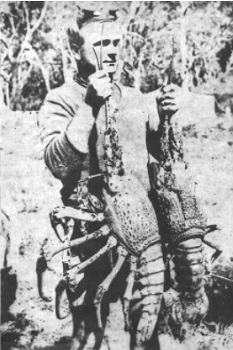
Something Fishy: A study in believe it or not
Researching my books I do come across some very interesting characters, none more so than former Maitland resident Athel D’Ombrain AM. Athel’s resume includes photographer, optician, naturalist, author, cricketer, pioneer angler, game fisherman and historian. Born in 1901 Athel’s contribution to society and inventiveness were significant. His fishing involvement was of most interest to me. One of Athel’s revolutionary plans was reported in the NSW Game Fishing Bulletin 1947. >click to read< 09:49
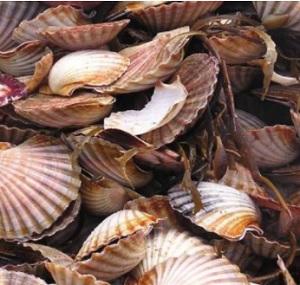
Individual transferable quota system hurting Tasmania’s fishing fleets
“ITQs have caused a decrease in owner operators and a decrease in active vessels in the fleet,, “Separation of ITQ ownership from the fishing sector has created a whole range of unintended consequences, which have ultimately seen the flow of majority of profits to investors, not the fishing fleet.” King Island Council deputy general manager Kate Mauric told the committee some fishermen felt disadvantaged due to contract management from investors, though this was not as pronounced on the island as elsewhere. >click to read< 10:54
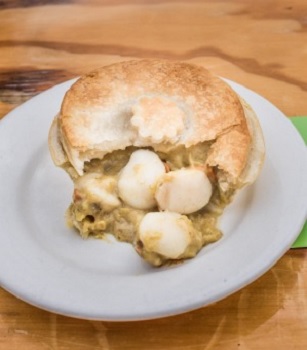
Victoria takes on Tassie in the scallop pie stakes with Victorian scallops
“These are our best pies yet!” announces Apollo Bay Bakery owner Sally Cannon,,, While famous for its curried and mornay variety scallop pies, it was not until last week that Apollo Bay Bakery could use Victorian scallops. Cannon has previously relied on Chinese-grown scallops and Tasmanian,,, However, the discovery of a massive new scallop bed off the shores of Lakes Entrance in East Gippsland will lead to a fresh wave of Victorian scallops,,, 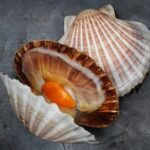 A huge swath of seabed is estimated to hold nearly 8000 tonnes of scallops within 20 nautical miles of the coast. Lakes Entrance fisher Andy Watts expressed the town’s excitement. “The fleet is ready to rock and roll and head out fishing early next week,” >click to read< 20:11
A huge swath of seabed is estimated to hold nearly 8000 tonnes of scallops within 20 nautical miles of the coast. Lakes Entrance fisher Andy Watts expressed the town’s excitement. “The fleet is ready to rock and roll and head out fishing early next week,” >click to read< 20:11
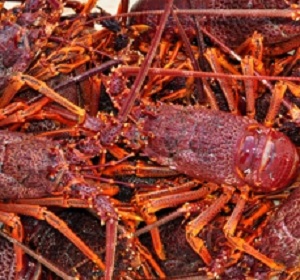
Australian lobsters back on the Chinese menu as ‘grey trade’ fires up again
Australian lobster fishermen shut out of mainland China appear to be selling millions of dollars’ worth of crayfish to the once-booming market via unofficial “grey channels”, trade experts say. Commercial fishers across the country were left reeling in November when China appeared to impose an unofficial ban on Australian lobster exports that had been worth hundreds of millions of dollars. The suspension effectively stopped the trade with China, which had been buying more than 90 per cent of lobsters exported from Australia. >click to read< 11:48
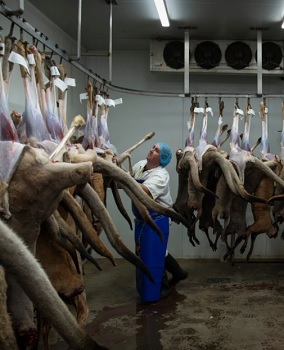
As in culling seals for conserving fish, U.S. activists try to halt an Australian way of life: Killing Kangaroos
“See, that’s a doe,” he said. “I don’t especially want to shoot a doe.” A doe usually has a joey in her pouch. He and others who hunt kangaroos bear this in mind, Mr. White said, despite claims to the contrary by American activists who are trying to shut down their livelihood, calling it inhumane. These critics, he said, just don’t understand how life actually works here in the middle of Australia. Kangaroos have been hunted on the continent for thousands of years, “and there are still more of them than people,” Mr. White said. Most important, said Mr. White, 58, a third-generation full-time shooter who goes by “Whitey,” kangaroos produce healthy meat, strong leather and the jobs that keep small towns whole. >click to read< 09:51

Something Smells Fishy: Allegations of Fraud in Ocean Acidification Research
While on tour in Australia in 2010, my friend, David Archibald said to me “Ocean Acidification is the last refuge of the climate scoundrels”. It appears he may be right. It also appears that James Cook University has a real research integrity problem, that Dr. Peter Ridd has pointed out, and got fired for daring to say it. From Science Magazine: Does ocean acidification alter fish behavior? Fraud allegations create a sea of doubt – In 2009, Munday and Dixson began to publish evidence that ocean acidification, a knock-on effect of the rising carbon dioxide level in Earth’s atmosphere, has a range of striking effects on fish behavior, such as making them bolder and steering them toward chemicals produced by their predators. But their work has come under attack. A group of seven young scientists, led by fish physiologist Timothy Clark of Deakin University, published a Nature paper reporting that in a massive, 3-year study, they didn’t see these dramatic effects of acidification on fish behavior at all. >click to read< 18:37
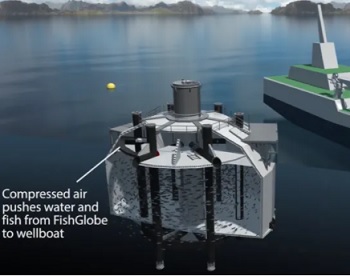
The last cowboys – a replay of the story of cattle in the American West
Norway, a country less than a quarter the size of Alaska, is on pace to bring 1.2 million tonnes of salmon to market this year, and the technologists in that country are talking about the potential to grow their production to 3 million tonnes per year by 2030. Chile, Scotland, the Faroe Islands, and Canada are all significant producers with lesser production in Australia, New Zealand, Iceland, France, Ireland and Finland. Meanwhile, land-based, recirculating aquaculture systems (RAS) farms are threatening to lead to an explosion in salmon aquaculture almost everywhere. To truly understand the threat these farmers pose to the future of one of Alaska’s oldest and still largest industries,,, >click to read< 08:52
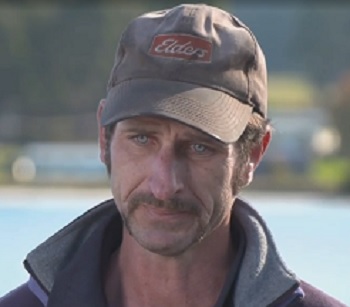
A “heavy mental impact” – Tasmania’s rock lobster industry suffers in trade war
Beijing cancelled the China Australia strategic economic dialogue this week, effectively ending trade relations between the two countries. For Tasmania’s rock lobster fishers this trade war is real and destroying their livelihoods and businesses in less than 12 months. Lobster fisher Kane Ebel said there was a “heavy mental impact” to the trade war. “When you get out of bed in the morning and you’ve got big debts on your boat and your house and effectively can’t go to work, it’s got to take a toll,” he told Sky News. >click to watch< 18:48
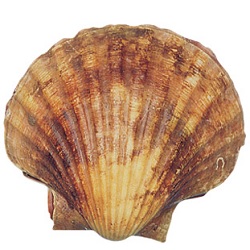
New Scallop Beds Discovered! Scallop Boom On Way For Victoria.
The Andrews Labor Government is delivering a boost to Gippsland’s scallop industry, lifting the allowable commercial catch for the ocean scallop fishery by more than seven times after new scallop beds were discovered off the east coast. A survey conducted near the Tarwhine oil and gas fields off Gippsland confirmed a return of harvestable scallop beds in the area, and subsequent consultation with industry bodies and licence holders has resulted in a substantial increase to the total allowable commercial catch (TACC), from 135 to 979 tonnes. >click to read< 13:55

SAFETY: A gradual culture change has been taking place across much of the fishing industry
As one of the world’s leading insurers of fishing vessels, Sunderland Marine keeps a close eye on the fishing industry’s evolution and has encouraged increasing safety awareness. Sunderland Marine has taken the initiative where it has seen that improvements can be made,,, This is not just in the UK, but also through initiatives in Australia and New Zealand, both of which have also seen a safety culture developing in the right direction In the US, Sunderland Marine has also been instrumental in making available independent safety drills for crews working on East Coast draggers and scallopers. In addition, the offshore crab fishery that’s familiar to anyone who has seen the Deadliest Catch on TV has seen positive changes. photos, >click to read< 17:32
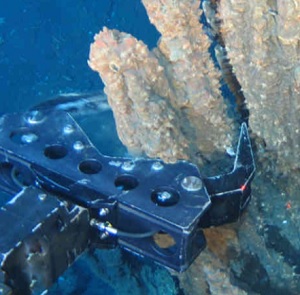
Seabed mining ban – a win for marine life, fishing and culture
The Northern Territory Government first declared a three-year temporary ban on seabed mining in March 2012 and has since extended it twice under both the Country Liberal Party (CLP) and Labor Governments. With the temporary ban due to expire in March, Territorians have made it clear that they want a permanent ban. It’s great to see today the Government listen and act on this important issue. “The Top End has some of the last healthy tropical coasts in the world. Seabed mining is like bulldozing the seafloor. It would decimate our marine life, pollute our waters, threaten our fishing and destroy places of cultural significance.” >click to read< 12:37
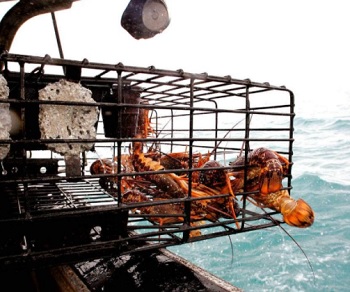
New Zealand crayfish in hot demand in China, selling for $100, as China-Australia relations sour
Though this time of year is usually quiet a shift in global politics has made for a busier November and December than expected. A diplomatic stoush saw China refuse various Australian exports, including live crayfish, also known as kōura or rock lobster. Suddenly Chinese buyers are paying a lot more to get hold of New Zealand crays. The extra cash has been a welcome boost, after the industry’s $38m loss during lockdown. >click to read< 16:43
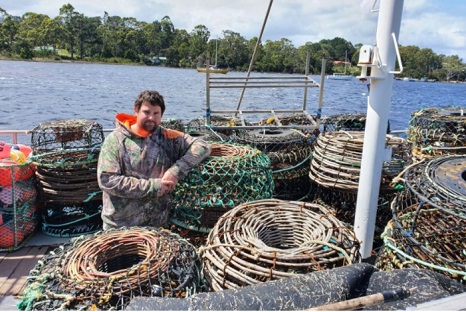
Australia: Cheap lobsters on Christmas tables as prices plummet due to China import ban
Commercial fishers operating in Victoria, Tasmania, and South Australia are supplying record volumes to the domestic market after China’s ban on Australian live lobster imports. With the crustaceans removed from restaurants and markets in China, (you know the drill),,,Tasmanian commercial fisher Jason Hart this week sold his catch directly to the public at the Strahan wharf. “I’ve never had to worry about selling them from the wharf before,” Mr Hart said. “Even when our markets have been bad you can still on-sell the fish. But I’ve never seen it like this,,, >click to read< 13:48
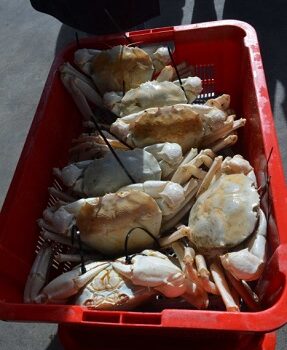
Western Australia’s Crystal crabs immune to impact of coronavirus, selling for more than $300
The crabs are found in a thin trench of water, 80 kilometres off the Western Australia coast, at depths of 800 metres. West Coast Deep Sea Fishery takes to the pristine deep waters all year round in search of the product. Managing director Glen Bosman said he believed he had the best crystal crabs in the world. “Not arguably, it’s fact. We receive the highest price for that species of crab,” he said. The crystal crab is pale white in colour, with distinctly shorter walking legs, and can weigh more than two kilograms. “The crab sits in the middle of the table, is broken up, and then shared by a number or people because of its size. >click to read< 09:55
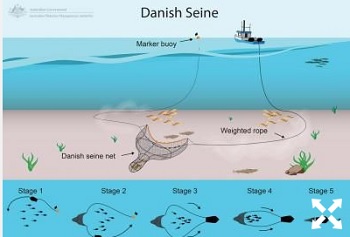
REPORT: Shocking results from seismic research
According to the report, which French seismic company CGG participated in, whiting catches fell by 95% and flathead 75% from January to July compared with the prior six months. While the report is preliminary, and just the first of a four-stage study into seismic acquisition and the effect it has on marine life, it paints a concerning picture for the offshore oil and gas sector as it backs up speculation by fishing companies that seismic acquisition can damage marine habitats.,, The environmental impact of seismic surveys on the marine environment is a hotly contested one, with the oil and gas industry noting it was key to securing exploration, and the fishing industry concerned it is losing catches immediately after surveys are conducted. >click to read< 09:24
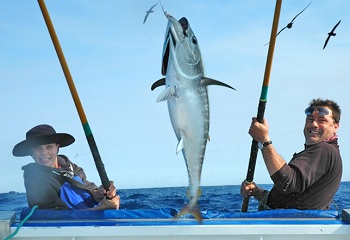
Tuna partnership to drive youth employment
Port Lincoln tuna baron Hagen Stehr and Port Adelaide Football Club Aboriginal programs director Paul Vandenbergh are joining forces to drive jobs for indigenous youth in the seafood industry. The pair, along with Far West Coast Native Title Group director April Lawrie have formed a new company, Wanna Mar Stehr and aim to launch their first branded tuna products in the new year. Vandenbergh is also in the process of finalising 60 training places for indigenous youth at the Port Adelaide-based Australian Maritime & Fishing Academy, which Stehr founded in the 1990s. “The opportunity for those guys will be endless because they don’t have to work for us and they don’t even have to stay in South Australia or even Australia because it’s an international certification. >click to read< 08:59

1967: Two fishermen feared dead for almost a week were the toast of Portarlington last night.
In their broken down shark boat Veronica, they had won out after a grim, six-day battle against raging Bass Strait seas. Late on Saturday night, after a desperate last signal for help had been sighted by Cape Otway Lighthouse, the 32-ft. Veronica was taken in tow by another fishing boat. Yesterday morning the two crewmen, skipper Len Joseph, 32, and his mate Ron Oldfield, 34, stepped ashore at Apollo Bay, “back from the dead.” The engine had failed only two hours after sailing from Port McDonnell. Last Monday the men ran out of food. Len Joseph kept a log book which spells out the drama of the ordeal. >click to read< 08:49






